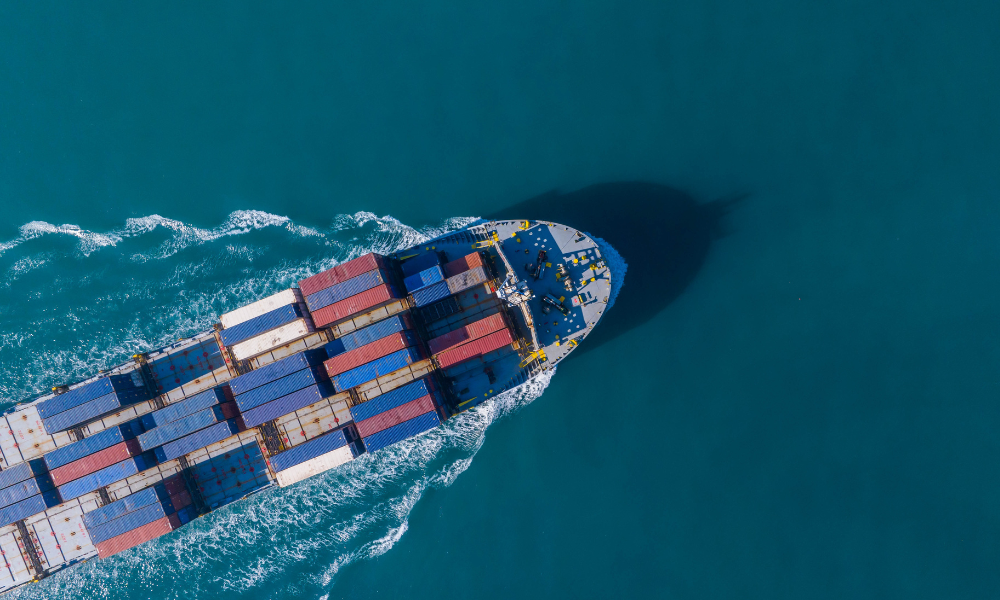Steel, autos, and lumber face 35% tariffs after failed talks and fentanyl-linked accusations

Canadian exports face a major disruption as US President Donald Trump signed an executive order increasing tariffs on Canadian goods to 35 percent, citing fentanyl concerns and failed trade talks, according to BNN Bloomberg.
The new rate, up from 25 percent, affects products not covered by the US-Mexico-Canada Agreement (USMCA).
According to Reuters, Trump’s order directly links the hike to Canada’s “failure to cooperate” in curbing illicit narcotics, and includes a 40 percent levy on goods rerouted through third countries to evade the tariff.
Ottawa has repeatedly stated that only a small fraction of fentanyl entering the US originates from Canada and has already introduced stricter border controls.
The tariff increase arrives alongside a nearly tripled anti-dumping duty on Canadian softwood lumber, rising to 20.56 percent from 7.66 percent.
A further hike in countervailing duties is expected to bring the total to 34 percent, as reported by BNN Bloomberg.
These measures could severely impact sectors tied to steel, aluminum, automobiles, and forestry.
Mirax Group vice-president Parm Binning said the hikes could lead to layoffs, especially among the more than 250 family-run companies in British Columbia.
“35 percent on lumber going across the line is just ridiculous. It’s going to kill thousands of jobs,” he told CTV News.
Brian Menzies of the Independent Wood Processors of British Columbia echoed those concerns, warning, “It’s not just that we may have to slow down for a while and lay some people off. It’s like, this might be the end of my business.”
Premier David Eby said any new trade agreement should include a resolution on softwood lumber, and Prime Minister Mark Carney has indicated the issue is a priority.
Canada exports about 75 percent of its goods to the US, leaving it vulnerable to US trade actions.
According to Canadian government data cited by BNN Bloomberg, the proportion of exports to the US declined from 78 percent in May 2024 to 68 percent in May 2025, driven by tariffs on auto parts and products made with steel and aluminum.
Premier Doug Ford of Ontario called on Ottawa to impose a 50 percent counter tariff on US steel and aluminum, stating, “Now is not the time to roll over. We need to stand our ground.”
Trade talks between Carney and Trump’s administration remain unresolved.
Carney said earlier this week that while discussions had been “constructive,” a comprehensive deal lifting US tariffs remained unlikely.
Trump said no direct call took place despite Carney’s outreach attempt, and later added on social media that Canada's support for Palestinian statehood would make it “very hard” to strike a trade deal.
While Canada faced increased tariffs, Trump granted Mexico a 90-day reprieve from a planned 30 percent hike.
Mexico will continue to face a 25 percent tariff on autos and 50 percent on metals not USMCA-compliant, according to CNBC.
Mexican President Claudia Sheinbaum called her conversation with Trump “very good” and confirmed the delay.
The 35 percent Canadian tariff contrasts with reduced or postponed duties for other trading partners.
Cambodia and Thailand, as reported by BNN Bloomberg, successfully negotiated their rates down to 19 percent.
Chile secured a carve-out for refined copper exports, which account for 65 percent of US imports.
Brazil was hit with a 50 percent tariff, while South Korea accepted a 15 percent duty in exchange for US$350bn in US-based investments, according to Reuters.
India faces a 25 percent tariff, alongside an additional penalty due to its purchase of Russian oil. The rupee weakened following the announcement.
Goods from Taiwan will be subject to 20 percent, Switzerland to 39 percent, and several others including Israel, Iceland, Ghana, Guyana, and Ecuador to 15 percent.
Lesotho’s initial 50 percent tariff was reduced to 15 percent.
Trump’s tariff push, which affects 69 countries, will take effect August 7.
A senior official told BNN Bloomberg the delay was needed to harmonize tariff schedules.
Some multinational companies have already begun bracing for the changes.
Campari Group CEO Simon Hunt told the Associated Press that pending US tariffs would cost the company €20m this year and €35m next year, adding that the company may need to raise prices.
Ferrari has kept a 10 percent surcharge on most vehicle models shipped to the US, pending further clarification.
As reported by Reuters, US courts are questioning Trump’s legal authority to impose these tariffs under the 1977 International Emergency Economic Powers Act.
Circuit Judge Jimmie Reyna noted that the law “doesn’t even mention the word ‘tariffs’.” The case is under appeal after a lower court ruled Trump exceeded his authority.



